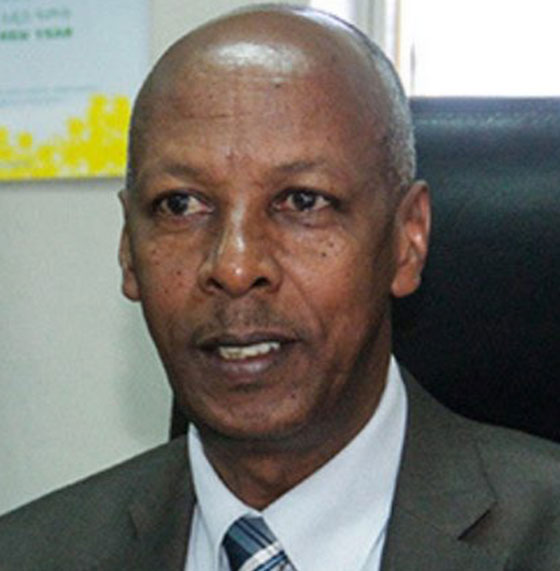
Commentaries | Nov 21,2018
Nov 27 , 2021
By Abreham Ketema
The political developments in Ethiopia are concerning but youth unemployment still needs to be addressed. It is at least partly a contributor to the political situation in the country, writes Abreham Ketema (abrehamketemawin7@gmail.com), who works as a researcher.
With the volatile political situation in Ethiopia, the psychological devastation and depression it is causing the youth has been overlooked by the private and public sectors. To make things worse, since the current military escalation, a market for graduates has been rare and unemployment is likely on the rise. The military conflict between government forces and rebel groups in the country has added gas to an inflammatory economic situation already exasperated by the COVID-19 pandemic.
The country's economy has been under pressure, while the double-digit unemployment was a sign that job creation is not matching population growth and the rural to urban migration. The recent political developments in Ethiopia are taking matters from bad to worse. The international community might be adding fuel to the fire by failing to see the bigger picture, going by their actions of development aid suspension. The loss of legitimate strategy and coordinated efforts to mitigate the root cause of unemployment has undermined any effort by any individual concerned body.
Over the past half a century, history suggests that the high rate of unemployment can lead to political instability, eventually bringing down the hope bestowed upon the improving levels of literacy and education. Insurgency, armed rebellion and populism are at least partly the result of a lack of economic growth and inclusive economic institutions. The effect of the current events in Ethiopia is still to be seen.
There are no secrets that the labour markets have always been distorted. The supply of opportunities in the economy has never kept up with the demand, even as new markets and spaces, such as digital, have opened up. There are commendable efforts to improve the doing business environment, incubate new businesses and put in place a startup act. Microfinance institutions are expanding their services and providing a wide range of loans as well. The move is an effort to bring down rising unemployment. It is essential to mobilise and coordinate the country's financial institutions to realise this. Despite the country's potential for economic growth, the solution lies in the hands of the demonstrable and effective policies followed by the government and financial institutions.
Clearly, political stability resulting from genuine discussion around the table has always been the first step to eradicating unemployment. Peace is the key to navigating a strategic policy. All concerned bodies need to prioritise this issue. If peace is not restored, it will be hard to actualise any policy to bring unemployment to the low single-digits.
Allowing a suitable environment for private sector investment is another key area. Obviously, there would be higher opportunities for young graduates as the industry expands. In principle, the private sector adds to the stock of capital, and the quantity of capital available to an economy is a crucial determinant of employability in our nation. The private sector also offers wider opportunities the better it is regulated and the more incentives it receives.
To reach a general consensus on how to move forward on the issue of unemployment, it is necessary to get to the root cause. Reaching the goal of the Sustainable Development Goals (SDGs) depends to a large part on how well unemployment is tackled. The labour market is self-sustaining. The more jobs there are, the more people have to spend. The higher the spending in the economy, the higher the consumption. And as consumption rises, the more industries and markets supply, and the bigger a labour force they would need, hiring people to meet the demand.
Young graduates aspire to earn a better living. Everyone else should help them make their dreams come true.
PUBLISHED ON
Nov 27,2021 [ VOL
22 , NO
1126]


Commentaries | Nov 21,2018

Viewpoints | Feb 20,2021

Sunday with Eden | Apr 10,2021

Editorial | Nov 02,2024

Sunday with Eden | Nov 18,2023

Agenda | Jul 09,2019

My Opinion | Jun 17,2023

Commentaries | Aug 31,2019

Sunday with Eden | Dec 19,2018

Radar | Aug 21,2021

Photo Gallery | 178081 Views | May 06,2019

Photo Gallery | 168291 Views | Apr 26,2019

Photo Gallery | 159048 Views | Oct 06,2021

My Opinion | 137044 Views | Aug 14,2021
Commentaries | Oct 25,2025

Dec 22 , 2024 . By TIZITA SHEWAFERAW
Charged with transforming colossal state-owned enterprises into modern and competitiv...

Aug 18 , 2024 . By AKSAH ITALO
Although predictable Yonas Zerihun's job in the ride-hailing service is not immune to...

Jul 28 , 2024 . By TIZITA SHEWAFERAW
Unhabitual, perhaps too many, Samuel Gebreyohannes, 38, used to occasionally enjoy a couple of beers at breakfast. However, he recently swit...

Jul 13 , 2024 . By AKSAH ITALO
Investors who rely on tractors, trucks, and field vehicles for commuting, transporting commodities, and f...

Oct 25 , 2025
The regulatory machinery is on overdrive. In only two years, no fewer than 35 new pro...

Oct 18 , 2025
The political establishment, notably the ruling party and its top brass, has become p...

Oct 11 , 2025
Ladislas Farago, a roving Associated Press (AP) correspondent, arrived in Ethiopia in...

Oct 4 , 2025
Eyob Tekalegn (PhD) had been in the Governor's chair for only weeks when, on Septembe...

Oct 25 , 2025 . By YITBAREK GETACHEW
Officials of the Addis Abeba's Education Bureau have embarked on an ambitious experim...

Oct 26 , 2025 . By YITBAREK GETACHEW
The federal government is making a landmark shift in its investment incentive regime...

Oct 27 , 2025
The National Bank of Ethiopia (NBE) is preparing to issue a directive that will funda...

Oct 26 , 2025 . By SURAFEL MULUGETA
A community of booksellers shadowing the Ethiopian National Theatre has been jolted b...